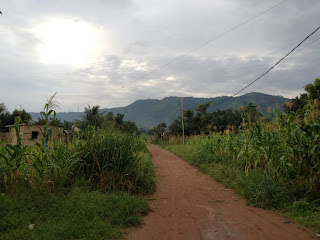This week I came across two very different articles about young people in international development work. The first is
I encourage anyone who has time and has interest in this sort of thing to take a look at them both, and make your comments here.
The first is: "'Globals' Generation Focuses On Experience" by Sam Sanders (NPR)
The second is "The White Savior Industrial Complex" by Teju Cole (The Atlantic)
Together, from my perspective, the contrasting perspectives from these articles make an inseparable pair. I don't think you can understand one without the other. I don't think either is quite useful without the other. The fact is, there is a growing number of young people, like me, who want to not only see the outside world, but be a dynamic and valuable part of it. And as we will learn, assuming we learn with open eyes and mind, there is an easy way to travel the world and stroke your ego, and there is a difficult way, that takes time, frustration, confusion, and feelings of uselessness intercepted by small, real victories. When we get here, we all oscillate somewhere in between.
The following is from an email to my colleagues in Burkina and Cameroon, as we have been discussing the Cole article and what it means in our partnerships.
The discussion of forging partnerships is one that we will have continually throughout our careers. It's part of what makes development work challenging- having to always reflect on the purpose of your work in the great context of global dynamics and the often blinded human desires to simply "do good for the world".
Of course, the Globals article resonated with me in terms of the trajectory of our lives as being strikingly different from previous generations. As development work and travel are getting more and more popular for "cool American 20-something heros" (as Cole calls them), we have to be concerned that young people aren't just flooding into Africa with all hopes of saving the world without having anything sustainable to offer.
As young researchers, I truly feel like we do have something sustainable to offer, as long as we do pay close attention to our relationships with our partners. We are fortunate here in Togo to work with very educated, very motivated people. One thing that draws me into qualitative research in international health is that the benefit we offer is not so much our resources or our privileged background, or our superior knowledge. It is a fresh and different cultural perspective, a means for people to look at their culture and society in a deeper and fresher way, that if done in an ideal fashion, can be free of the superiority complex. Qualitative tools, I believe, allow for that, and are even more valuable when you have a diverse team of people designing and implementing them. In the same way, I think some of our Togolese partners should be invited to the States to help us do a qualitative study on why Americans waste so much energy, or what we really believe our health rights and policies ought to be.
I would never give up international work on account of "Dead-Aid"- like criticisms, but I find I need to constantly keep myself in check to really be a "partner". What we do here is a microcosm of what we want to happen in the world. We need to constantly be careful not to let the "white savior" in us prevail, and really strive to set grassroots for a world of global partnerships?
The hardest part of all this is the outside world's admiration for the "White Savior" and ignorance to the complexities of global politics, development, and culture. If the "Global Generation" is truly upon us, I challenge any of you young people out there to become leaders of it. Set an example of humility, patience, respect, and the importance of defining what you really will offer when you travel abroad.


























